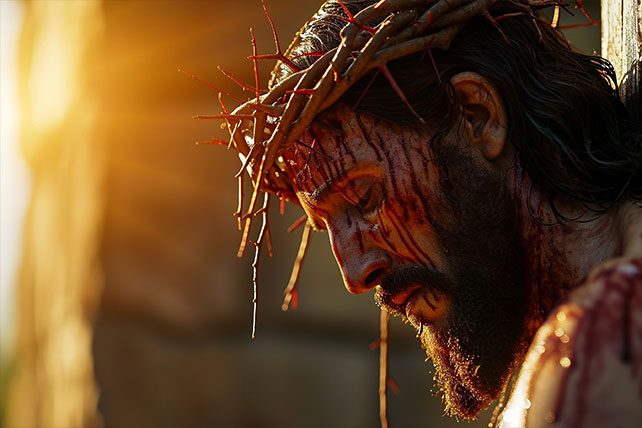Unique Aspects of Jesus’ Crucifixion
While crucifixion was a common Roman execution method, several aspects of Jesus’ crucifixion set it apart from typical Roman practices. Firstly, Jesus was crucified for claims of being the King of the Jews, a charge rooted in religious rather than civil disobedience. This charge reflects the unique intersection of Roman law, Jewish tradition, and Jesus’ own teachings.
Secondly, the events leading to Jesus’ crucifixion were marked by significant religious and supernatural occurrences, according to Christian narratives. These include the Last Supper, which established the ceremony of Eucharist in Christian faith, and the darkening of the sky during Jesus’ crucifixion, symbolizing divine sorrow.
RELATED: Maundy Thursday Devotion—5 Gems From the Last Supper
Additionally, Jesus’ interactions with others during his crucifixion underscored his teachings on forgiveness and love. Even while enduring immense suffering, Jesus asked forgiveness for his executioners and assured paradise to the repentant thief crucified alongside him. This response under extreme duress and injustice highlights the profound moral and spiritual dimensions of his teachings.
Finally, the resurrection of Jesus, a cornerstone of Christian faith, is intrinsically linked to his crucifixion. This event is unique as it signifies not just the end of Jesus’ earthly life but the beginning of a new covenant between God and humanity, underscoring the transformative power of Jesus’ death and resurrection.

